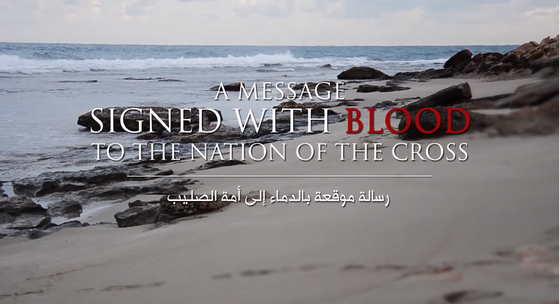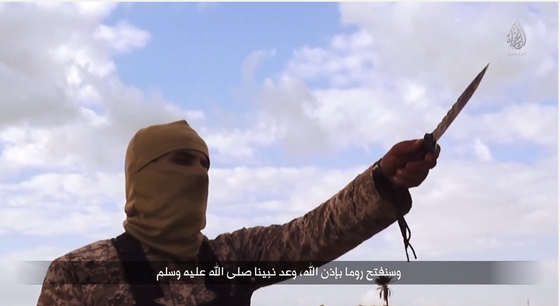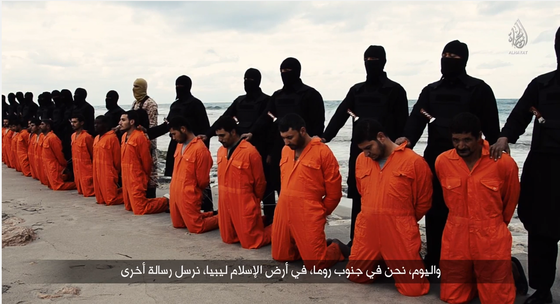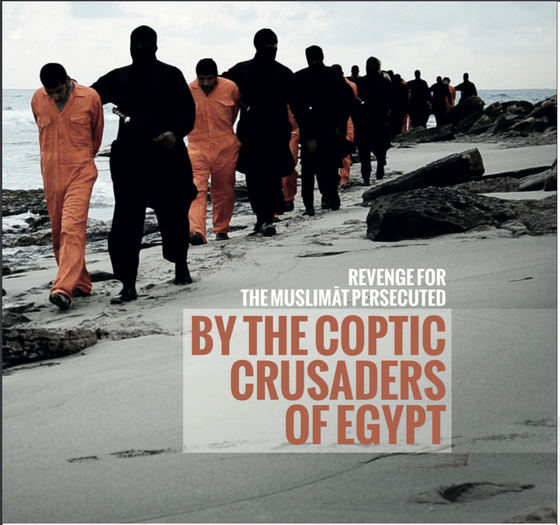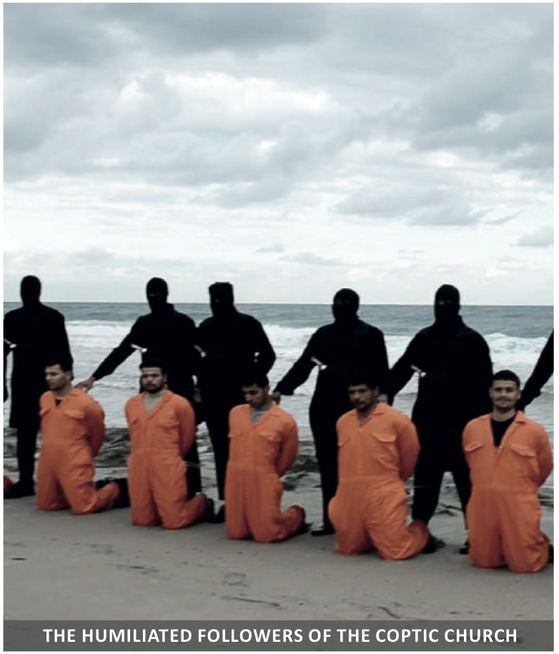A video released by the Islamic State shows fighters from one of its so-called provinces in Libya beheading 21 Egyptian Copts. The mass murders were advertised by Islamic State's media operatives over the past couple of days. And the latest edition of the organization's English-language magazine Dabiq, which was released last week, implied that the men had been killed.
In a scene that is similar to past videos from Iraq and Syria, the Islamic State's victims are ritualistically walked along the coast of the Mediterranean Sea before being forced to kneel with their captors standing behind them.
An English-speaking fighter then talks, saying that he and his fellow jihadists are sending a message from "the south of Rome," thereby threatening Italy. In recent weeks, members of the Italian government have called for more aggressive international intervention in Libya.
The fighter then says that the Islamic State and its allies will continue to fight the "Crusaders" until Jesus comes again. This is a reference to the apocalyptic Islamic belief that Jesus will reappear at the end of days.
The Islamic State's head executioner says that the West hid Osama bin Laden's body in the sea, and so the jihadists will mix the West's blood in the same sea.
After the men are beheaded, the English-speaking fighter raises his knife to the water and swears that the Islamic State will conquer Rome.
The fighter's reference to Osama bin Laden stands in stark contrast to the Islamic State's denunciation of Ayman al Zawahiri, bin Laden's successor as al Qaeda chief, in the latest edition of Dabiq.
The Islamic State claimed in Dabiq that the kidnapping of the 21 Egyptian men came "almost five years after the blessed operation against the Baghdad church." That attack was launched in late 2010 by the Islamic State of Iraq (ISI), the predecessor to the current Islamic State. The ISI claimed at the time that the suicide assault, which left dozens of people dead, was revenge for the supposed mistreatment of women in Egypt.
Abu Bakr al Baghdadi's propagandists repeated this claim in Dabiq. But the Islamic State added that al Qaeda spokesman Adam Gadahn, referred to by his nom de guerre Azzam al Amriki, condemned the act "in some of his letters" to the group. The Islamic State accused Gadahn of acting "on his personal rancor towards the Islamic State as soon as he became a top leader of [al Qaeda] after the martyrdom of" Osama bin Laden. Gadahn's critique of the Islamic State's practices are well-known, and his role in al Qaeda's senior ranks predates bin Laden's death.
The authors of Dabiq also accused Zawahiri of defending the Copts. "I want to restate our position towards the Coptic Christians. We do not want to get into a war with them because we are busy in the battle against the greatest enemy of the Ummah [America] and because they are our partners in this nation, partners whom we wish to live with in peace and stability," the Islamic State quoted Zawahiri as saying.
"So while the Islamic State targeted the Catholics in revenge for the sisters imprisoned by the Copts, Azzam al Amriki's commander [Zawahiri] was wooing the war-waging Copts themselves with feeble words," Baghdadi's men claimed in Dabiq.
The Islamic State has accused al Qaeda of being soft on Iran, as well as the Shiites in Iraq and Yemen. In executing the 21 Egyptian Copts, Baghdadi's organization extended this argument further, claiming that al Qaeda weakly opposes, or does not oppose at all, Egypt's Christians.
Thus, the beheadings shown in the newly released video were intended to intimidate both Egypt and Italy. And the Islamic State hopes to portray al Qaeda's leaders as being weak-minded in their pursuit of jihad.
Images from the Islamic State's new video and the latest edition of Dabiq magazine
The lead executioner points his knife at the Mediterranean Sea, promising that the Islamic State will conquer Rome:
In a scene reminiscent of the beheading videos to come out of Iraq and Syria, the Islamic State's victims are lined up in front of their murderers:
The video includes the same scenes portrayed in the latest edition of Dabiq, the Islamic State's English-language magazine:
The latest edition of Dabiq, which was released last week, included this image from the mass slaying:
